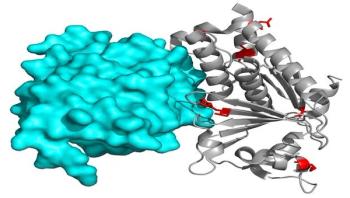
Kent researchers have identified how few mutations it can take for Ebolaviruses to adapt to affect previously resistant species.

Kent researchers have identified how few mutations it can take for Ebolaviruses to adapt to affect previously resistant species.
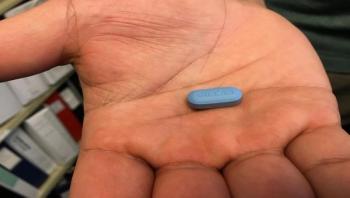
One of the most promising new approaches to slowing the spread of HIV is pre-exposure prophylaxis (PrEP), a once-a-day medication that people who don't have HIV can take to prevent becoming infected. But that strategy only works if people at risk for contracting HIV become and remain fully engaged in preventive care and actually take the pills. In the real world of clinical practice, that has often proved tricky.


A University of Florida Institute of Food and Agricultural Sciences entomologist will use a $200,000 grant from the Florida Department of Health to improve tests for the detection of the Zika virus.

Women have claimed for years that their bodies react differently whether they're pregnant with a male or female baby. Some studies suggest that a baby's sex could play a role in why some women report differences with morning sickness, cravings and other symptoms based on the sex of their baby. Now, evidence published in the February issue of the journal Brain, Behavior and Immunity, shows the sex of a baby is associated with pregnant women's immune responses.


The non-profit research and development organization Drugs for Neglected Diseases initiative (DNDi) has released results of a study in South Africa that will make it easier for healthcare workers to treat children living with HIV who are co-infected with tuberculosis (TB). The study, presented as a late-breaker this week at the Conference on Retroviruses and Opportunistic Infections (CROI) in Seattle, provides essential evidence and data to counter the negative interactions between two critical HIV and TB treatments.







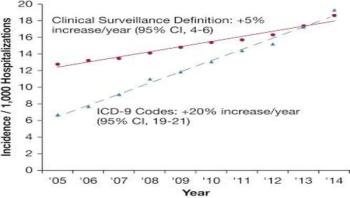
Sepsis is a major public health problem and the focus of national quality measures and performance improvement initiatives. Understanding what is happening with sepsis rates and outcomes is thus an area of great importance. However, tracking sepsis rates and outcomes is challenging because it is a heterogeneous syndrome without a definitive "gold standard" test. In the February issue of CHEST, investigators compared the effectiveness of claims-based surveillance using ICD-9 codes with clinical-based data and specific diagnostic parameters. Their findings suggest that surveillance based on clinical criteria is a more reliable way to track cases of septic shock.






More than 1 million healthcare associated infections (HAIs) occur within the U.S. healthcare system every year. According to a study per-formed by the Centers for Disease Control and Prevention (CDC), approximately 1 of every 25 hospitalized patients in the U.S. develop an HAI, meaning that nearly 650,000 patients contract one of these infections annually. These infections can lead to serious illness and result in the loss of thousands of lives each year. In addition they impose a tremendous financial burden, estimated to be more than a billion dollars annually in the U.S.


The red berries of the Brazilian peppertree -- a weedy, invasive species common in Florida -- contain an extract with the power to disarm dangerous antibiotic-resistant staph bacteria, scientists at Emory University have discovered.


Malaria mosquitoes prefer to feed -- and feed more -- on blood from people infected with malaria. Researchers from Stockholm University, the Swedish University of Agricultural Sciences and KTH Royal Institute of Technology have discovered why. The findings can lead to new ways to fight malaria without using poisonous chemicals. The results will be published in the next issue of the journal Science.

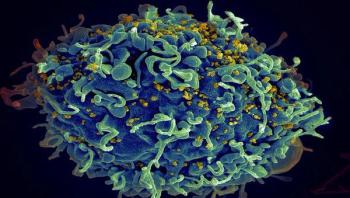
Viral and human genetics together account for about one third of the differences in disease progression rates seen among people infected with the human immunodeficiency virus (HIV), according to new research published in PLOS Computational Biology. The findings suggest that patient genetics influences disease progression by triggering mutations in the HIV viral genome.
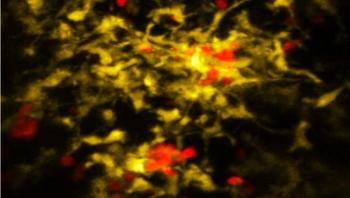
A few days after a viral infection, countless killer cells swarm out to track down and kill infected body cells. In this way, they are highly effective at preventing pathogens from being able to spread further. An international research team has now explained an important mechanism behind building this army. The work under the aegis of the University of Bonn is published in the journal Immunity.
